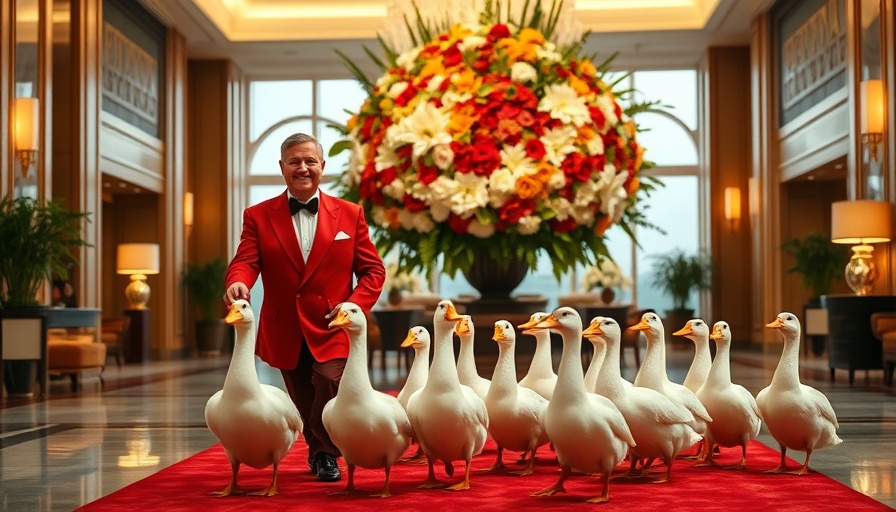
Kenon Walker: A New Face in an Old Tradition
At the iconic Peabody Hotel in Memphis, a unique role known as the Duckmaster has captured the attention of both locals and tourists alike. Kenon Walker, the current Duckmaster, has taken on this charming yet poignant position. His journey to this role not only involves guiding five ducks to their daily fountain march but also reflects the deep historical currents of race and tradition.
The Quirky But Beloved Tradition
The tradition of the Duckmaster began in 1933, born from a rather whimsical incident involving a hotel manager and too much whiskey. Guests quickly fell in love with the sight of ducks enjoying their time in the hotel fountain, and this quirky spectacle has persisted through the decades. However, the symbolism of the role carries more weight than one might expect, especially considering its background in a segregated South.
Breaking Barriers
Kenon Walker hesitated when first offered the Duckmaster position. He was aware that most previous Duckmasters were white, which made him question his place in this longstanding tradition. However, his story is intertwined with that of Edward Pembroke, the first Duckmaster, who was a Black man creating a spectacle for both guests and the ducks alike. Pembroke's innovation not only introduced joy to the hotel but also challenged the racial norms of the time.
A Reflection of Change
The evolution of the Duckmaster role signifies a shift from a segregated past to a more inclusive present. Walker's position as Duckmaster is not just a job; it’s a step towards breaking down barriers and recognizing the contributions of those who were previously overlooked. Through this peculiar job, Walker showcases how traditions can evolve and serve as platforms for social change.
Looking Ahead: The Future of a Beloved Position
As Walker leads guests and ducks through their daily routines at the Peabody, he carries the legacies of those who came before him, while also paving the way for future Duckmasters. His role highlights the importance of inclusivity, reminding us that sometimes the most charming traditions can also serve as powerful statements of progress.
 Add Row
Add Row  Add
Add 




 Add Row
Add Row  Add
Add 

Write A Comment